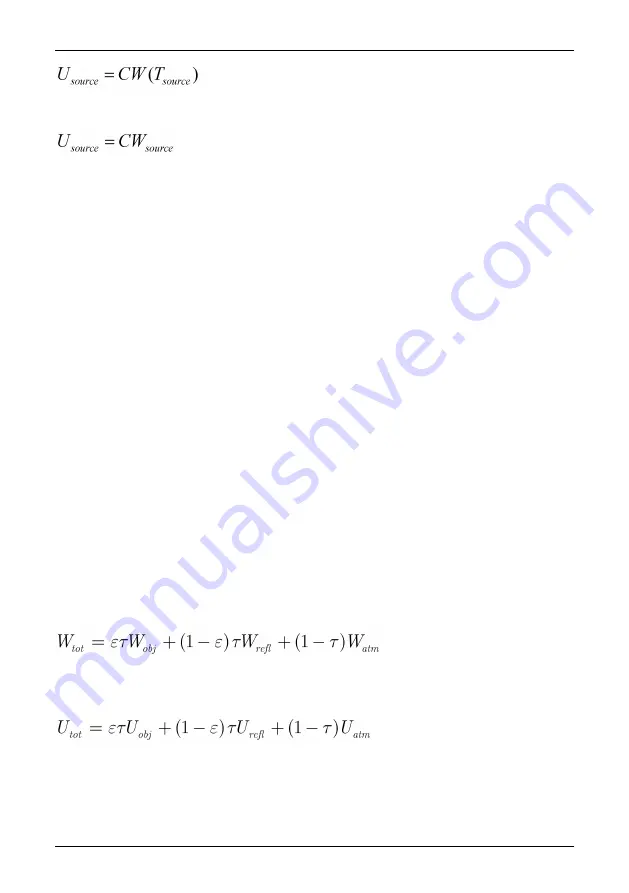
or, with simplified notation:
where C is a constant.
Should the source be a graybody with emittance
ε
, the received radiation would
consequently be
εW
source
.
We are now ready to write the three collected radiation power terms:
1 – Emission from the object
=
ετW
obj
, where
ε
is the emittance of the object and
τ
is the transmittance of the atmosphere. The object temperature is
T
obj
.
2 – Reflected emission from ambient sources
=
(1 – ε)τW
refl
, where
(1 – ε)
is the re-
flectance of the object. The ambient sources have the temperature
T
refl
.
It has here been assumed that the temperature
T
refl
is the same for all emitting surfaces
within the halfsphere seen from a point on the object surface. This is of course
sometimes a simplification of the true situation. It is, however, a necessary simplification
in order to derive a workable formula, and
T
refl
can – at least theoretically – be given
a value that represents an efficient temperature of a complex surrounding.
Note also that we have assumed that the emittance for the surroundings = 1. This is
correct in accordance with Kirchhoff’s law: All radiation impinging on the surrounding
surfaces will eventually be absorbed by the same surfaces. Thus the emittance = 1.
(Note though that the latest discussion requires the complete sphere around the object
to be considered.)
3 – Emission from the atmosphere
=
(1 – τ)τW
atm
, where
(1 – τ)
is the emittance of
the atmosphere. The temperature of the atmosphere is
T
atm
.
The total received radiation power can now be written (Equation 2):
We multiply each term by the constant
C
of Equation 1 and replace the
CW
products
by the corresponding
U
according to the same equation, and get (Equation 3):
Solve Equation 3 for
U
obj
(Equation 4):
Publ. No. T559733_en-US Rev. a571 – ENGLISH (EN) – November 4, 2011
79
21 – The measurement formula








































